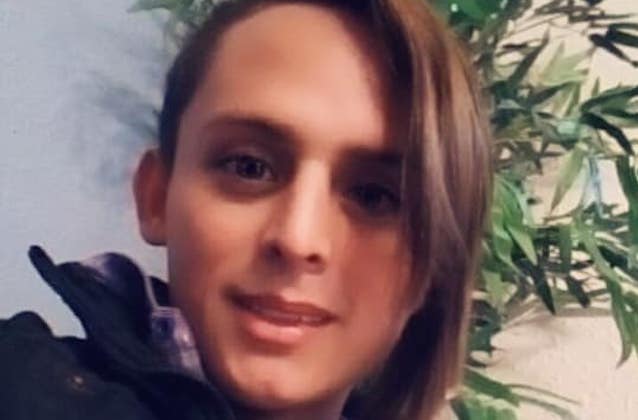Johana Medina Leon, a transgender migrant from El Salvador, died after being in the custody of Immigration and Customs Enforcement (ICE), according to news reports, the National Center for Transgender Equality (NCTE) and Central American transgender advocates at Diversidad Sin Fronteras.
Medina, 25, reportedly came to the United States seeking asylum in April and was immediately detained by ICE. According to The Guardian, ICE officials confirmed that Medina passed her first interview in the asylum-seeking process a month after she arrived. It was determined she had a “credible fear” of persecution if forced to return to El Salvador. Six weeks after her arrival, while still in ICE custody, she tested positive for HIV and told officials she was experiencing chest pain. They sent Medina to the hospital and granted her a release while she was there, but she died on Saturday (June 1).
The Guardian reports that ICE officials ignored her pleas for help before finally sending her to the hospital: “Leon had repeatedly pleaded for medical help and was held in poor conditions, [according to] advocates who had contact with her and others at the privately run New Mexico detention center.” It’s unclear exactly how much time passed between Medina asking for medical help and actually being sent to the hospital, but Rewire.News reporter Tina Vasquez shared an ICE-created timeline of events on Twitter that claims Medina was sent to the hospital the same day she began complaining about pain.
According to the NCTE’s emailed statement on Medina’s passing, ICE officials stressed that Medina was “not in their custody at the time of her death.” But the issue according to NCTE is that her medical needs were not met as soon as they first surfaced. According to Vasquez, people close to Medina say she requested medical attention throughout the entirety of her two months in ICE custody. Medina’s case is similar to the story of Roxsana Hernández, a transgender migrant from Honduras who died in May 2018 while in ICE custody due to complications from HIV.
Vasquez points out on Twitter that ICE has a pattern of releasing people from custody when it’s clear they are dying to avoid having to admit that another person died in its custody: “ICE drags its feet on providing medical care, finally allows a detained person to go to the hospital, realizes how dire their health situation is, and then releases them from custody. When they die, they're no longer an in-custody death,” she tweeted.
Mara Keisling, executive director of NCTE, says in an emailed statement:
rnt
Johana’s death is a yet another inhumane failure by ICE to treat those in its custody with even a modicum of care, humanity or dignity. The high rates of abuse and neglect endured by women like Johana and Roxsana are an unconscionable and immoral way for the richest country on Earth to treat people fleeing horrific persecution and seeking our help. It is increasingly clear the inhumanity of ICE as an agency is only fueled by the racist disdain throughout the Trump administration for the very lives we have a legal and moral duty to protect. We stand with Johana’s family and the advocates in Central America and the United States working to hold this administration accountable.
In a letter to former Security of Homeland Security Kirstjen Nielsen, Representative Kathleen Rice (D-N.Y.) used data provided by NCTE to underscore the dangers transgender migrants face in ICE custody: “Transgender migrants held by ICE report high levels of physical and sexual abuse as well as inadequate food and a lack of access to basic medical care… Transgender people only make up 0.1 percent of the detainee population, yet 12 percent of sexual assaults reported to the agency come from transgender detainees.”
Nathan Craig, a volunteer with Advocate Visitors with Immigrants in Detention in the Chihuahuan desert, told the Guardian, “These are individuals who are fleeing persecution for being transgender. They’ve already suffered some significant issues,” he insisted. “They are fragile. They are vulnerable.”
